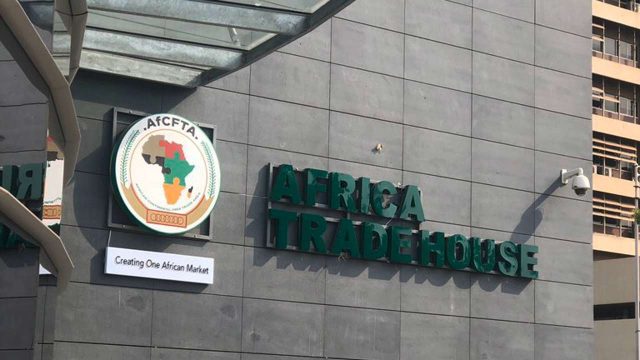The Nigerian Shippers’ Council (NSC) has called for robust collaborations to maximize the benefits of the African Continental Free Trade Area (AfCFTA). The council emphasized the need for public and private sector partnerships to position Nigeria as a key player in Africa’s trade integration agenda.
Unlocking AfCFTA’s Potential
Speaking at a stakeholder engagement forum in Lagos, the Executive Secretary of the NSC, Emmanuel Jime, outlined the vast opportunities that AfCFTA offers to Nigeria’s economy. With the agreement poised to create a single market for goods and services across 54 African nations, Jime stressed that Nigeria must strengthen its infrastructure, logistics, and regulatory frameworks to fully benefit from the initiative.
“The AfCFTA is not just an economic agreement; it is a transformative platform that can redefine intra-African trade. To leverage its potential, we must align our strategies, improve efficiency in our shipping and logistics operations, and build partnerships that enhance competitiveness,” Jime stated.

Addressing Challenges
Despite the promises of AfCFTA, the Shippers’ Council highlighted several challenges that could hinder Nigeria’s participation, including:
– **Poor Infrastructure**: Insufficient port facilities and inadequate road and rail networks.
– **High Cost of Logistics**: Elevated shipping and warehousing costs that reduce the competitiveness of Nigerian exports.
– **Regulatory Bottlenecks**: Complex and overlapping regulatory frameworks that delay trade processes.
To overcome these obstacles, Jime called for coordinated efforts between government agencies, private sector players, and international partners.
### Strategic Focus Areas
The NSC proposed several initiatives to enhance Nigeria’s readiness for AfCFTA, including:
1. **Logistics Improvement**: Upgrading port infrastructure and streamlining customs processes to facilitate faster cargo clearance.
2. **Technology Adoption**: Leveraging digital platforms for efficient cargo tracking and trade documentation.
3. **Capacity Building**: Training stakeholders on AfCFTA’s provisions and opportunities to ensure compliance and competitiveness.
4. **Policy Harmonization**: Aligning national trade policies with AfCFTA’s objectives to reduce trade barriers.
### Collaboration Opportunities
The council urged private sector players, such as shipping companies, logistics providers, and exporters, to explore partnerships that would expand Nigeria’s market reach under AfCFTA. International agencies were also invited to provide technical and financial support to enhance trade facilitation.
### Boosting Exports
The Shippers’ Council identified key sectors where Nigeria could excel under AfCFTA, including agriculture, manufacturing, and services. By addressing logistics and policy challenges, the country could significantly increase its export volumes and tap into the $3.4 trillion market that AfCFTA represents.
### Stakeholder Engagement
Participants at the forum lauded the NSC’s proactive approach, emphasizing the need for sustained dialogue and actionable steps to address trade barriers. Industry experts also highlighted the importance of regional cooperation in building trade networks and sharing best practices.
### Conclusion
The Nigerian Shippers’ Council’s call for partnerships underscores the critical role of collaboration in harnessing AfCFTA’s benefits. By improving infrastructure, adopting technology, and fostering synergy among stakeholders, Nigeria can strengthen its position as a leading trade hub in Africa.
As the continent moves closer to economic integration, the success of AfCFTA will depend on countries like Nigeria stepping up to play pivotal roles in driving intra-African trade and investment.
Support InfoStride News' Credible Journalism: Only credible journalism can guarantee a fair, accountable and transparent society, including democracy and government. It involves a lot of efforts and money. We need your support. Click here to Donate
